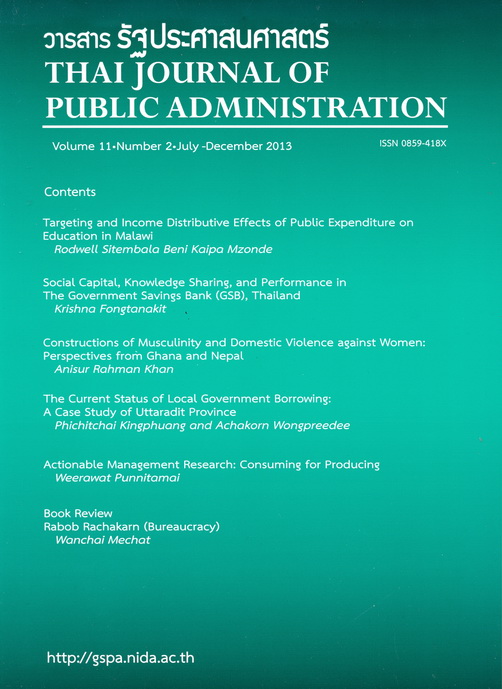Targeting and Income Distrubutive Effects of Public Expanditure on Education in Malawi
Keywords:
Public expenditure effects, income distribution, educationAbstract
The objective of the study was to assess how public expenditure on education is targeted to different segments of the population and examine its effects on income distribution in Malawi. This is in response to high levels of income inequality and proportions of people living below the poverty line. The study used Benefit Incidence Analysis (BIA) to assess how public expenditure on education is targeted and how it affects income distribution. Results show that public expenditure on education improved income distribution in 1998 and 2001 while in 2005 it increased income inequality between poor and rich households. Furthermore, public expenditure was favorably targeted to poor households at the primary education sub-sector whereas at secondary and tertiary education levels, it favored the rich, increasing income inequality. Hence, public expenditure on education improved income distribution at primary education level whereas at secondary and tertiary education levels, it worsened the poverty in Malawi.



